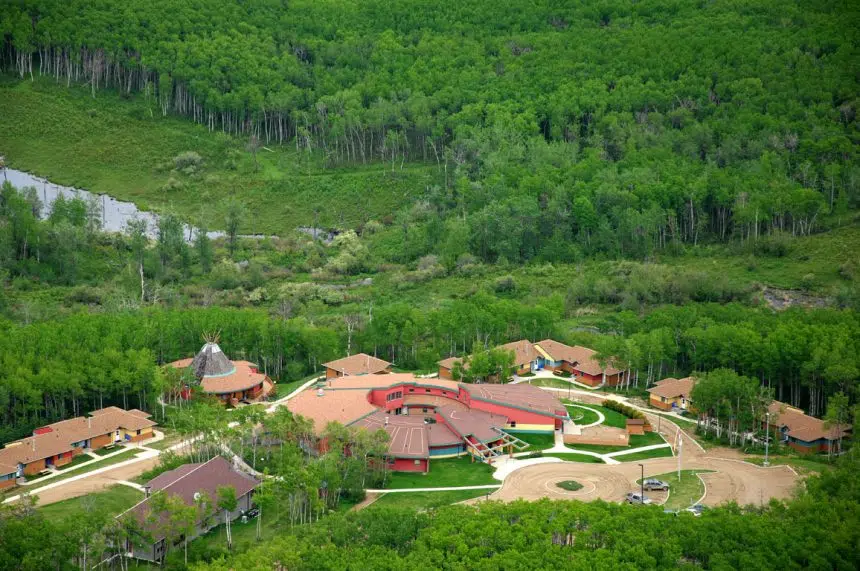When convicted child killer Terri-Lynne McClintic was transferred to their local healing lodge, the people of Nekaneet First Nation had no say and no idea she was living there for nine months.
McClintic was convicted of first-degree murder in the brutal kidnapping, rape and murder of eight-year-old Tori Stafford in 2009. McClintic pleaded guilty in 2010 and was sentenced to life with no parole for 25 years. She was reportedly transferred to the Okimaw Ochi Healing Lodge in the Cypress Hills in December 2017.
Cherish Francis is a Nekaneet band member and was shocked to find out that a person like that was in her community. Judging by comments from other band members, she said many are angry and concerned that McClintic is there.
For many years, she said local elders had a say in who would be allowed to transfer to the Okimaw Ochi Healing Lodge.
“They would travel during the interview process for some of these inmates that were looking to transfer to the facility,” said Francis, who also handles communications for the First Nation.
“It was cut six years ago and since then we’ve had no say as to who comes out of the healing lodge and that is really concerning as a band member.”
Francis pointed out the healing lodge has been a part of their community for 23 years and the inmates have been accepted to participate in cultural ceremonies with elders.
She said the community members have always known that the people in the healing lodge have done something pretty bad, but have trusted that they should be on the healing journey to improve themselves before they get there.
“When you have cases like this that are this horrendous it is a safety concern for everybody because we have children in our community and I know that there’s some mothers out there in our community that are absolutely concerned for their children.”
She said band members and leaders have had to trust the judgment of Corrections Canada to decide who gets to go to the healing lodge.
In the case of McClintic, Francis personally wonders how someone convicted of such brutal crimes could be granted a transfer to a healing lodge after serving a short part of her sentence in a federal prison.
“In my opinion if the elders were there in the intake process, I believe that McClintic wouldn’t be in our community right now because they would have screened her out and said her crime is too horrendous to come to our community,” Francis commented. “But they didn’t have that opportunity.”
She would like to see the elders reinstated by Corrections Canada to have input into who gets to come to the healing lodge and to improve the relationship with leaders so they know what’s going on there.
Nekaneet First Nation Chief Alan Francis shared the same concerns in an interview with Gormley guest host Murray Wood on Wednesday. He said there could have been a very different outcome if elders were still involved in the process.
When asked if this case harms the reputation of healing lodges as part of the justice system, Cherish Francis said it is unfortunate Canadians are disconnected from their true purpose of reducing the incarceration rate of Indigenous people.
“The general public doesn’t understand the whole purpose of a healing lodge, but for somebody like myself and the chief of Nakaneet, we understand as spiritual and culturally connected people what the original intent of the healing lodges actually were and that’s to heal the women so they can continue on their journey in a safe, productive manner.”
For her part, Francis believes they do work and the rate of re-offense for people coming out of a healing lodge is far lower than those who leave federal penitentiaries. She noted that some former inmates have returned to participate in ceremonies and thank them for their help.











